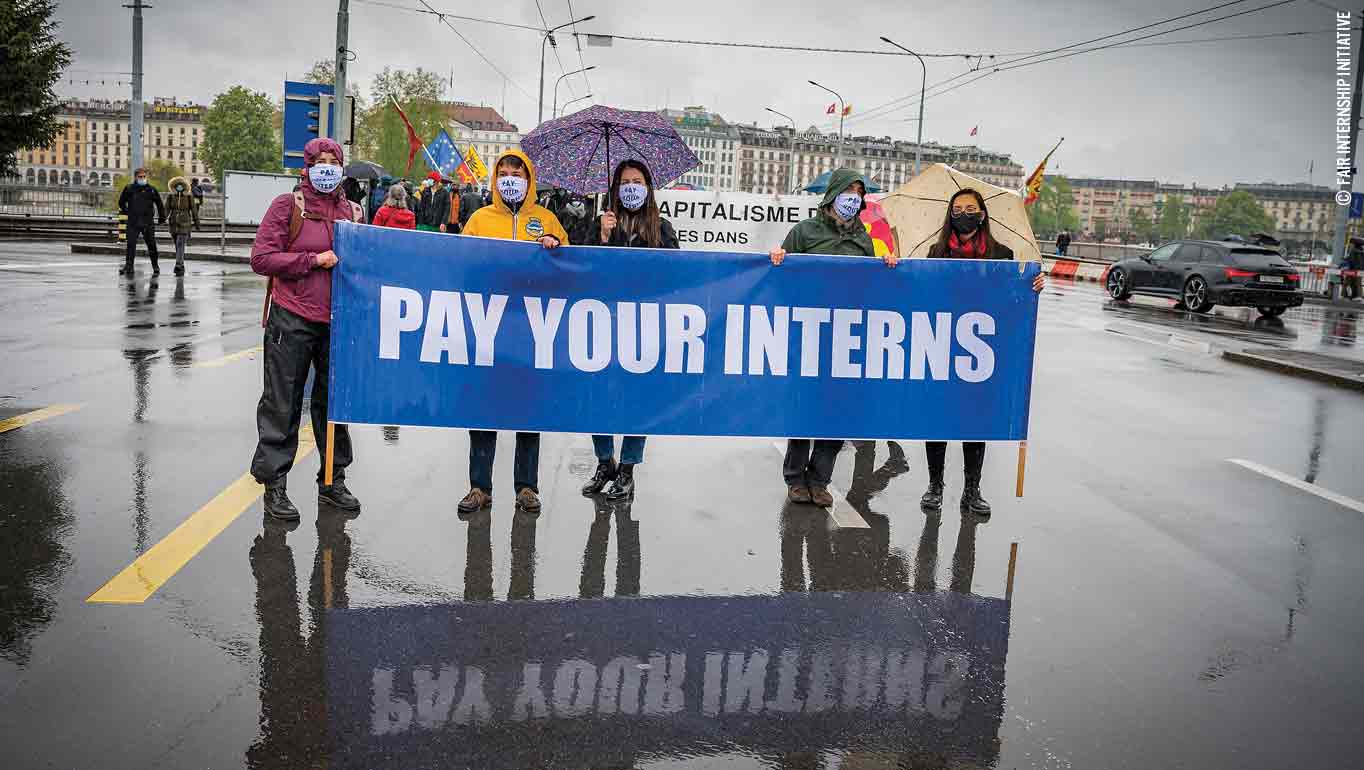The blue light shines, notifications buzz and emails come in at night because of the time difference. Most of them, like me, need to live with parents to save on rent. They can only engage with UN staff digitally, and they often get long tasks: excel sheets that need to be cross-checked, texts — drafted, slides — formatted and meetings — summarized. These valuable and arduous jobs save UN staff hours and days of work, the little tasks that paid UN staff shy away from, but still need to be done. Without unpaid intern labour, the current UN system would be unsustainable, since these small, annoying tasks would pile up. It is a hollow claim that interns are hired for their own learning benefit. They are hired mostly because they provide free, highly qualified labour.
Young people have suffered the most during the pandemic, their educational experience and social life has been ruined. They had to watch lectures and take exams under social isolation and stress. They have applied for internships and jobs during one of the biggest global socioeconomic upheavals in decades. Unpaid remote internships are an extension of their suffering and could be the new dystopian reality within the UN System. Luckily, my internship at the United Nations Development Coordination Office (UNDCO) has, so far, been good. I had already forgotten about my application and then, on extremely short notice, I was recruited for a remote internship in the policy branch. I have been lucky because my team has been exceptional: funny, innovative and hard-working. They do not accept the status quo but, instead, strive to do better. They have shown solidarity with the campaign for fair UN internships, recognizing the value of interns and the importance of socioeconomic justice in the workplace.
The HR department has, unfortunately, been less progressive. All interns in the UN Secretariat are unpaid, and the UNDCO is bound by the administrative instruction that denies compensation for interns. One could perhaps argue that UN staff do not have any agency in achieving improvements for interns. However, intern wellbeing should be a core consideration for HR, and they should act accordingly. They fail to substantially engage with the injustice that is done to UN interns. They have a safeguarding responsibility and should prioritise interns’ health and safety over anything else. The financial pressure of unpaid labour and the social isolation, working remotely, can have devastating effects on mental health.

In their most recent survey, the Fair Internship Initiative has found that most UN remote interns in 2021 suffered from acute mental health problems. Remote interns are more likely to be socially isolated and suffer under a detrimental work-life balance, and since interns are on the lowest rung on the ladder of UN authority, it requires a lot of mental strength to set clear boundaries. Often, many will work into the night due to the time difference, and depression and anxiety threaten to cause long-term damage to the new generation of UN interns who are, supposedly, to become ambassadors of UN values.
I wonder why the UN has been so slow in protecting interns? The Youth2030 Strategy was launched by the Secretary-General to empower young people and make them partners in their work for a better world, yet the UN Secretariat has failed to deliver on Youth2030 within their own organization.
Remote internships are not the solution to current unfair practices. Many within the UN system hope that remote internships will reduce the recruitment inequities by increasing socioeconomic diversity through “virtual recruitments” from the Global South. Remote interns no longer need to travel to their posts and live there, but can work from home. In theory, interns from all over the world could apply with much lower costs.
However, this is wishful thinking. Remote internships are bad news for interns and leave the discriminatory nature of unpaid internships unaddressed. Remote interns still need to be paid. They need a place to stay. They need computer equipment. I am lucky because I have the support of my family, but for others, six months without pay would be unthinkable.
Remote interns also have fewer opportunities to organize politically and make themselves heard. Since they are almost invisible, it is perhaps a comfortable proposition for the UN to have a legion of unpaid remote interns that works in the shadows. They face difficulties protesting and demanding change because they cannot physically connect, while social movements such as the Fair Internship Initiative, that might have a chance in changing the structural conditions for UN interns, are hindered. I hope that the UN system does not make unpaid remote internships the new norm. It would be a frightening and dystopian future for interns. They would perform invisible unpaid labor, while suffering under the negative mental consequences due to financial pressures, social isolation, and the concurrent inability to organize politically.



